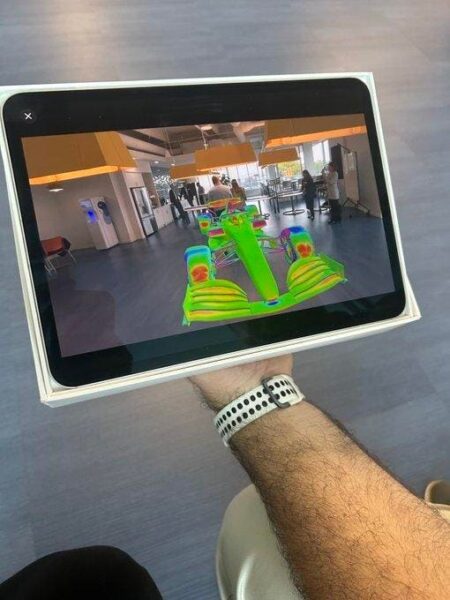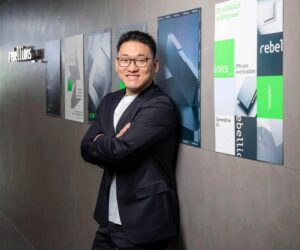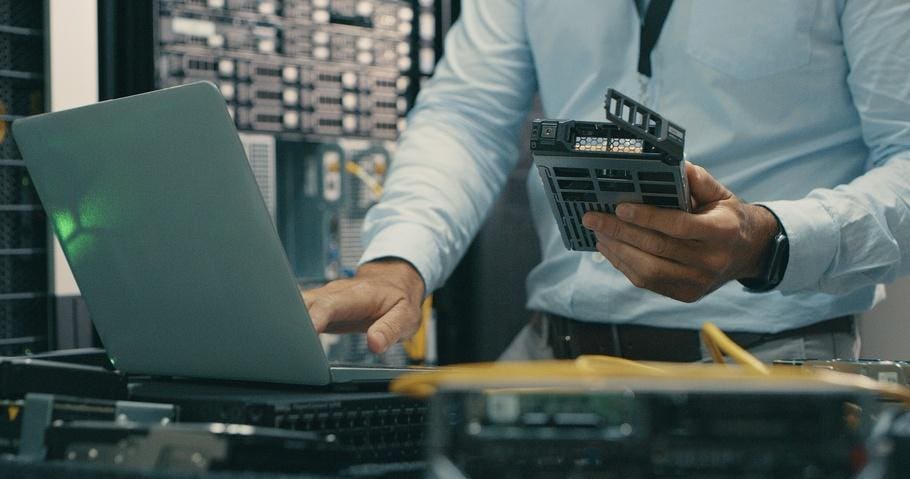A Dassault Systemes monitor shows what a user is seeing via an Apple headset of a Formula One race car.
Bill Koenig
France-based Dassault Systems this week showed where manufacturing technology is headed – a future relying on artificial intelligence and computerized simulations.
The company’s Detroit Technology Center in the Detroit suburb of Royal Oak, Michigan, held briefings for customers and for reporters.
Dassault has a partnership with Apple Inc. where Apple headsets are used so engineers and designers can view simulations to speed product development and lay out factories. The technology has applications for automotive, aerospace and other industries.
“We know we have a better mousetrap,” said Bill DeVries, vice president of North America brands and workforce of the future for Dassault.
Manufacturing generally has been turning to digital twins, or digital replicas, to design products and determine how they are built. It’s a way to reduce costs and hasten development.
Dassault says its digital systems also offer a way for different departments to work together and avoid the “silo” effect where functions remain separate.
Such software can permit more collaboration, according to Dassault.
“That’s what engineers need to do more of – experiment,” DeVries said.
“We need to shorten the development,” said Klaus Kung, director transportation and mobility industry for Dassault.
In the auto industry, traditional automakers are under pressure from Chinese manufacturers.
China automakers have sharply cut the time it takes to develop new vehicles.
“They can change incredibly fast,” Terry J. Woychowski, president, automotive of Caresoft Global, a Michigan-based engineering services company, said at a June event. Caresoft analyzes vehicles for customers, including automakers and suppliers.
Chinese automakers can develop new models in 14 to 18 months compared with 36 to 48 months for traditional automakers, Woychowski said at the time. Traditional auto companies are “three to five years behind from a technology standpoint,” he said.
At this week’s briefings, participants wore the Apple headsets and interacted with various manufacturing simulations. Such participants were immersed with manufacturing cells and collaborative robots, or cobots, which are deployed in close proximity to human operators.
Another simulation revolved around a Formula One race car. F1 is the most sophisticated form of motorsports where teams battle over fractions of a second to gain an advantage. F1 teams may make hundreds of changes between races.
Dassault is a vendor to multiple F1 teams. Currently, there are 10 teams of two cars each. That will rise to 11 next year with a General Motors Co. Cadillac team.
“All F1 teams are using part of our solutions,” Kung said.
The company’s Detroit Technology Center opened last year. It consolidated operations in southeastern Michigan.









